Interview : Appelusa McGlynn (USA)
In the United States, the "Roller Jam" show put the Roller Dance in the spotlight on Max. We had the opportunity to meet Appelusa McGlynn, Roller consultant during the casting. She proposes us to discover the backstages scenes of the selection of competing teams competing. Interview...
Par Lonch
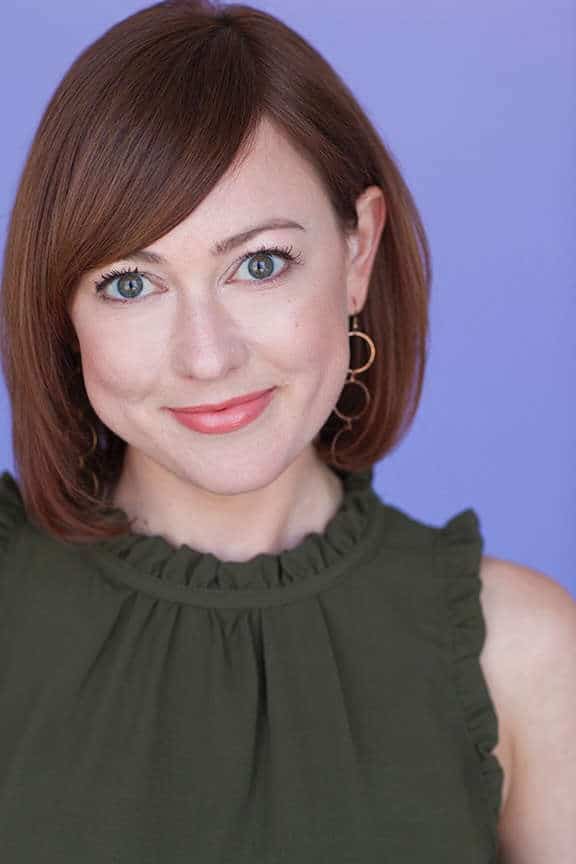
Appelusa McGlynn, consultant for the casting of Roller Jam
You may have already heard of Appelusa McGlynn. This talented skater worked on the casting of the program « Roller Jam » recently broadcasted on Max. Artist, professional skater, coach and choreographer, voiceover … She is not lacking in strings to her bow. Interview.
Hello Appelusa McGlynn, how did your story with roller skating start?
My grandparents met at a roller skating rink in Chicago. My grandfather opened Northridge, Skateland in Los Angeles in 1968. I competed in artistic skating from age five to age twenty one in various events. I had the most fulfilling conversations with skaters from all over, with similar stories. Their grandparents met at a skating rink in Chicago, they competed since a young age, and so forth. But mainly we shared our love for skating even if it was a different style or region or culture. So I suppose the surprise aspect was how long I spent on the phone with many of these people I only followed on social media.
Can you tell us about the casting process for « Roller Jam »? What were you looking for in contestants beyond skating ability?
Beyond ability, it was important to us to showcase the many different disciplines and styles in roller skating. There are the more commonly known sports under the roller skating umbrella: roller figure or “artistic” skating, speed, derby, hockey and park (ramps and bowls). Then there is jam, rhythm, Roller dance, and genres such as JB, snapping, California slide, trains & trios, etc. There are also very specific styles of regions such as New York, Chicago, Detroit, etc. We wanted to bring as many styles and genres as possible so America could learn about how diverse roller skating is.
How did you balance the need for skilled roller dancers with the desire to showcase a variety of backgrounds and skill levels?
Luckily, there are so many disciplines in the umbrella of roller skating. Moreso, each region has its own style within a genre. We were able to showcase many of these genres of skating such as artistic, jam, rhythm, and even park skaters for instance from all over the nation.
What was the audition process like? Were there specific challenges or requirements that potential contestants faced?
The skaters went through a lengthy process of interviews with casting and submitting footage of their skating ability as well as footage skating together.
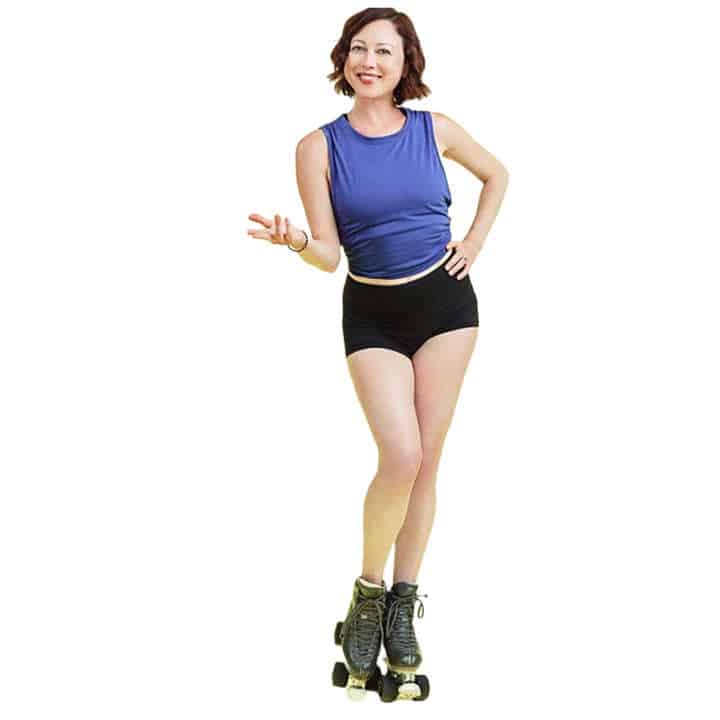
What was the minimum or ideal skill level for contestants? Were there any specific techniques or styles that were prioritized?
No style was necessarily prioritized, however we really wanted to make sure the skaters had the ability to accept a challenge and learn quickly. That they had stability and diversity in their skating ability. We also didn’t want 10 teams with the same style, but wanted to wow the audience with different tricks and techniques.
Was prior experience in roller skating or dance required or preferred? How did the show weigh experience versus raw talent?
Everyone who was cast has years if not decades of skating experience.
Was a strong social media presence or following a requirement or advantage for potential contestants?
Social media presence wasn’t a requirement but having content helps to determine the ability and consistency of the skaters.
Were there any particular challenges or surprises you encountered during the casting process?
There have been versions of this show trying to get made for years, and props to the showrunner, Nikki Boella, for getting Roller Jam on the air and streamed by MAX. The challenge I found was the protective nature of the skating community.
The skating community really voiced their concerns about how the show was going to showcase roller skating and its skaters.
Appelusa McGlynn
Especially since many of the producers weren’t specifically involved in roller skating culture. Now that the first episode has aired, the skating community has only positive feedback about the show and its diversity. They are inspired and ready for season two!
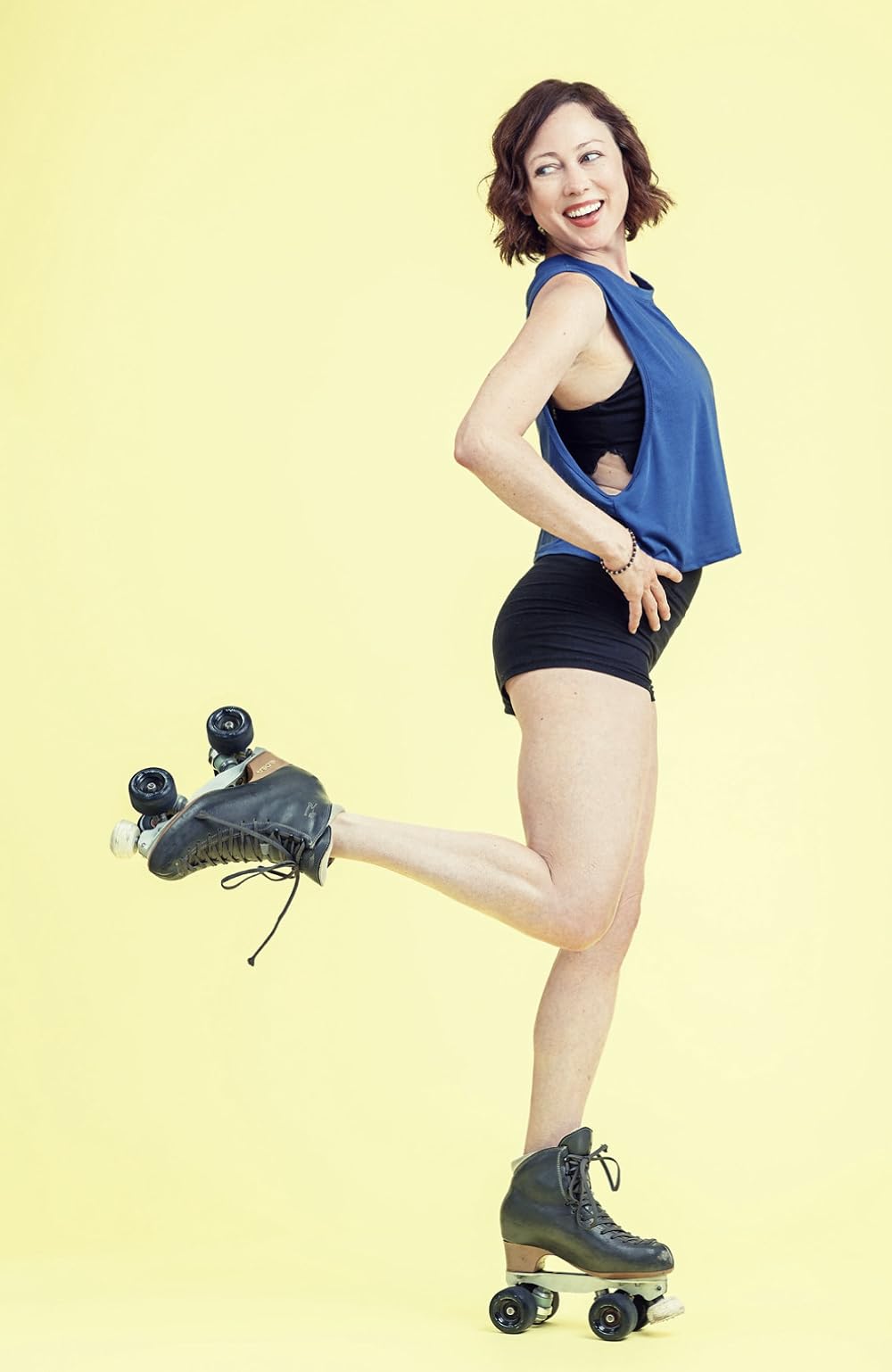
Appelusa McGlynn, Your family has a long history in roller skating. How has this influenced your approach to coaching, choreographing, and casting for « Roller Jam?
Yes, I am lucky to have been brought up skating by my family of rink owners. My uncle, Michael Fleming, taught Olivia Newton John how to skate for Xanadu (1980). My father, David Fleming, taught James Caan and the stunt men for RollerBall (1975). My mom, Nancy, had also coached actors for films. With my own background coaching, performing, doubling, or consulting for over fifty skating-related productions over two decades, I think brought a lot of experience. So while I was mainly consulting for casting in pre production, I also recommended the supervising choreographer, Fred Tallaksen, because I had worked with him for twenty years on productions. The resident judge, Terrell Ferguson, because I had worked with him for over a decade on various productions. I also recommended the skating floor which was used in the show- the USA Roller Sports traveling competition floor.
How did the pandemic impact your work and your outlook on the future of roller skating?
The pandemic was very difficult. Like many, it changed the course of my life. Skateland was closed for a very long time. But while the pandemic wasn’t the only reason it permanently closed, it was a big reason. I was teaching 5 days a week before the pandemic, coaching the artistic team, traveling to regionals and nationals, and teaching public classes. In between teaching I had other work and entertainment gigs. When the pandemic hit, I was not only out of work, my students were out of their normal routines and training. I began teaching Zoom conditioning classes and off-skates Zoom lessons to keep them participating. I also began a YouTube channel teaching skating skills. Surprisingly, skates were sold out nationwide!
I also started offering group Zoom lessons teaching skating skills or roller dance routines. It was actually really a highlight for me in my life.
I believe that although rinks are closing more and more, outdoor skating has really taken off. It’s important more now than ever to use this rise in numbers in outdoor skaters to voice to our cities to build proper safe and dedicated skating spaces.
Appelusa McGlynn
How did the challenges of the pandemic shape your perspective on the importance of roller skating and its community?
When the pandemic hit and people were using more creative outlets, and learning skating was one of them, I felt a sense of a growing community. I was connecting with people all over the world! Including Sebastien who invited me to write this interview!
As devastating as it was, the pandemic also pushed people to connect in different ways doing things they loved to do.
Appelusa McGlynn
What advice would you give to young skaters who aspire to follow in your footsteps?
Keep learning from all types of skaters and activities in general. Even if you don’t have a rink or a coach, we have YouTube tutorials from so many great skaters sharing their knowledge for free! For aspiring athletes, visualize yourself doing the skill before doing it. There’s power in visualization. It’s fear and doubt that holds us back. Use positive affirmations. And also, realize that skills take time to achieve. So practice is an essential skill in itself.
How do you see your role as a mentor in the roller skating community?
Recently I have been advocating more for outdoor skating spaces in my community. Many cities don’t have dedicated skating spaces for their skaters. There should be dedicated spaces for public recreation, just like in public parks where you find basketball courts, tennis courts, pickleball courts, and skate parks.
Are there any emerging trends or styles within the sport that you’re particularly excited about?
In artistic skating in particular, since that is where I come from, I have been excited to see new events form, as well as forgotten ones make a re-appearance. Like “Quartet” for instance, which is four people competing as a group, with particular requirements which may contain lifts, synchronized footwork, and choreography. In 2002, I competed the first year “Show Team” was created, and we ended up competing at the World Championships in Wuppertal, Germany. “Show Team” is a mix between synchronized skating and the Ice Capades. We ended up with a Bronze Medal, so of course, I was really excited about that!
Given your extensive experience in artistic roller skating, were there any specific skills or qualities you were looking for in contestants that might not be typically associated with roller dance?
I competed at Worlds in synchronized skating the last year of my competitive career, so I looked for the team’s ability to synchronize footwork and look like a cohesive unit. I also wanted to make sure skaters had the ability to be adaptable and be able to learn new skills quickly, knowing that production would be asking them to try new things and push themselves by requiring challenges. Additionally, we (casting) wanted to see unique styles and wow factors that made a skater or team stand out.
Appelusa McGlynn, Beyond skating ability, what other qualities or attributes were you seeking in contestants, such as personality, charisma, or stage presence?
Casting was more involved in the interview process which included sharing stories about skating, history in skating, and how they found skating. My main job was to recommend skate crews, choreographers, and potential judges, and to determine the ability level of the crews that submitted. I had no role in decision making, the casting team and producers had the final decisions on who interviewed and were ultimately cast.
The production side was really in charge of this aspect, so I was not on the decision making side of production, but rather recommending skaters and skate crews and whatever else production was needing for Roller Jam.
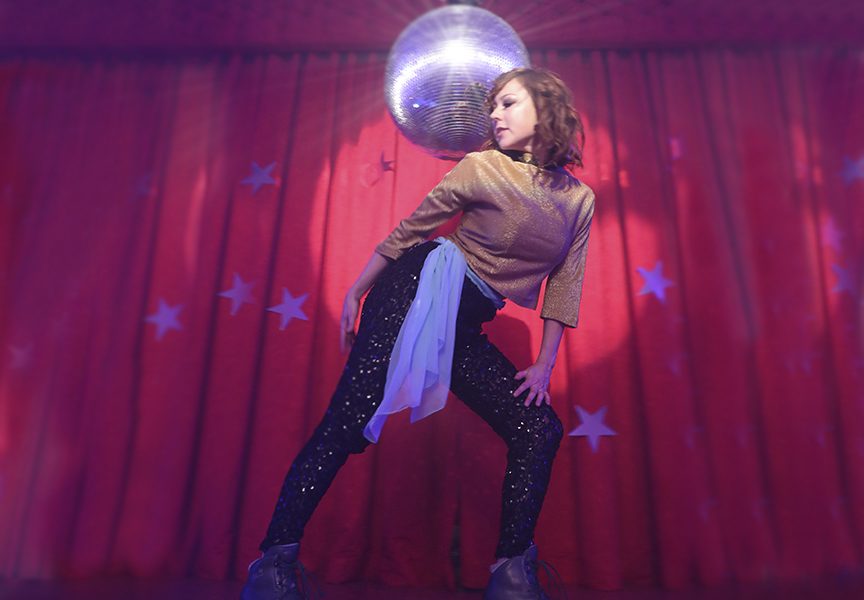
How did you balance the need for skilled roller dancers with the desire to showcase a variety of backgrounds and skill levels?
The challenge was more finding crews of skaters with the same level of skill, rather than balancing skilled roller dancers with a variety of backgrounds and skill levels. Every team we found had a unique background and story, so that wasn’t the challenging part for us
Did you encounter any particular challenges or surprises during the casting process? Were there any unexpected talents or skills that emerged?
The challenge was finding crews of skaters with the same skill levels. There is a plethora of super talented skaters out there, but this show called for skate crews, of people who skate together. So the challenge was finding crews, and making sure they all could perform synchronized footwork and dance moves and also have unique talent.
Appelusa McGlynn, how has your family’s long history in roller skating influenced your approach to coaching, choreographing, and casting?
I think having experience as an athlete, coach, performer, choreographer, and consultant, I know what it takes from all angles. On a show like Roller Jam, while you may be able to have multiple takes, you really need to be able to deliver the first time. So I was able to see through each of these lenses in order to make recommendations for casting and production.
How do you see roller skating as a form of artistic expression, and what qualities do you look for in contestants who share this perspective?
Roller skating is a safe haven for so many. There are countless stories from people about how roller skating saved their life. It is a form of mental health building. Not only does skating offer a form of exercise, releasing endorphins and improved cardiovascular health, it puts you in a flow state. It’s a form of mind/body medicine. When you can get out of your head and into your body, you can feel a sense of creativity emerge. Add some music and you have a unique opportunity to move more freely and creatively.
Can you tell us more about your YouTube channel and how it helped you connect with the roller skating community during a difficult time?
I knew I wanted to keep teaching, and starting a YouTube channel was just the outlet I was inspired to use at the time. Though I kind of lost momentum after transitioning to more normalcy in daily life, I still answer comments on the platform and feel so heart-warmed connecting to skaters worldwide who are inspired to learn and skate. Though I post more rarely now, I am inspired to publish a new series on my channel breaking down RollerJam and offer more backstory on the skate teams. Please look out for that!
How do you foster a collaborative and supportive environment among the contestants and production team?
I wasn’t part of production-side, so this wouldn’t apply to me.
What do you admire most about the contestants who made it onto the show? Are there any specific qualities or stories that stand out?
Every team had a story, and you can see some of that on the show. Skaters who found love for roller skating, who had hardships and losses and skating kept them going. Teams that had to sacrifice to practice together, had to make time outside of their 9-5 and families to practice and work hard to make it onto the show. They all have stories like this.
Have there been any particularly challenging or rewarding moments during the production of « Roller Jam »?
I wasn’t involved in the shoot, just pre production.
How do you envision the future of roller skating, and what role do you believe shows like « Roller Jam » can play in its growth and popularity?
Most people don’t know that artistic roller skating, or roller figure skating exists. Shows like Roller Jam can help bring awareness to genres of skating, as well as the history of roller skating. You will hear many histories of roller skating, from the sport of artistic skating to the styles of different cities. It’s important to understand where the roots of these genres and styles came from.
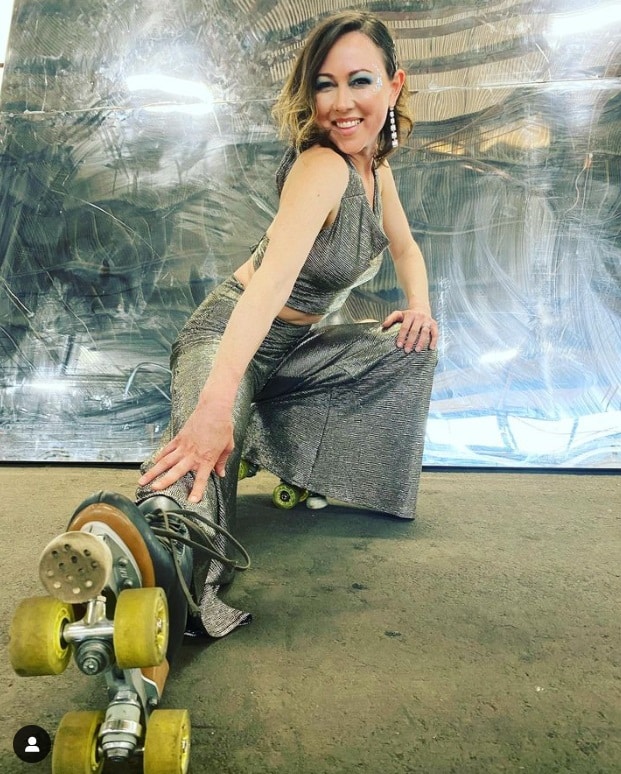
How do you see the future of roller skating, and what role do you believe shows like « Roller Jam » can play in its growth and popularity?
Having seen the first episode, and friends posting their kids watching and being inspired, I think the sport of roller skating will grow. I also think more people will voice their requests to their respective cities to create dedicated skating spaces. And I think more people will create groups and organizations to plan meetups, wellness days which include skating, pop-ups, and so forth.
Free speech: anything you would like to add…
I am just beyond excited to have been a part of this production, even in the background. I had the best time getting to know more people in my skate family, to learn more about the cultures and where these styles came from. I hope this aspect gets to be discussed more in future episodes, seasons, or alternatively documentaries and shows about roller skating. It’s vast!
Thank you for this interview Appelusa McGleen ! Enjoy your career on roller-skates!
Youtube Channel of Appelusa McGleen
To go further
